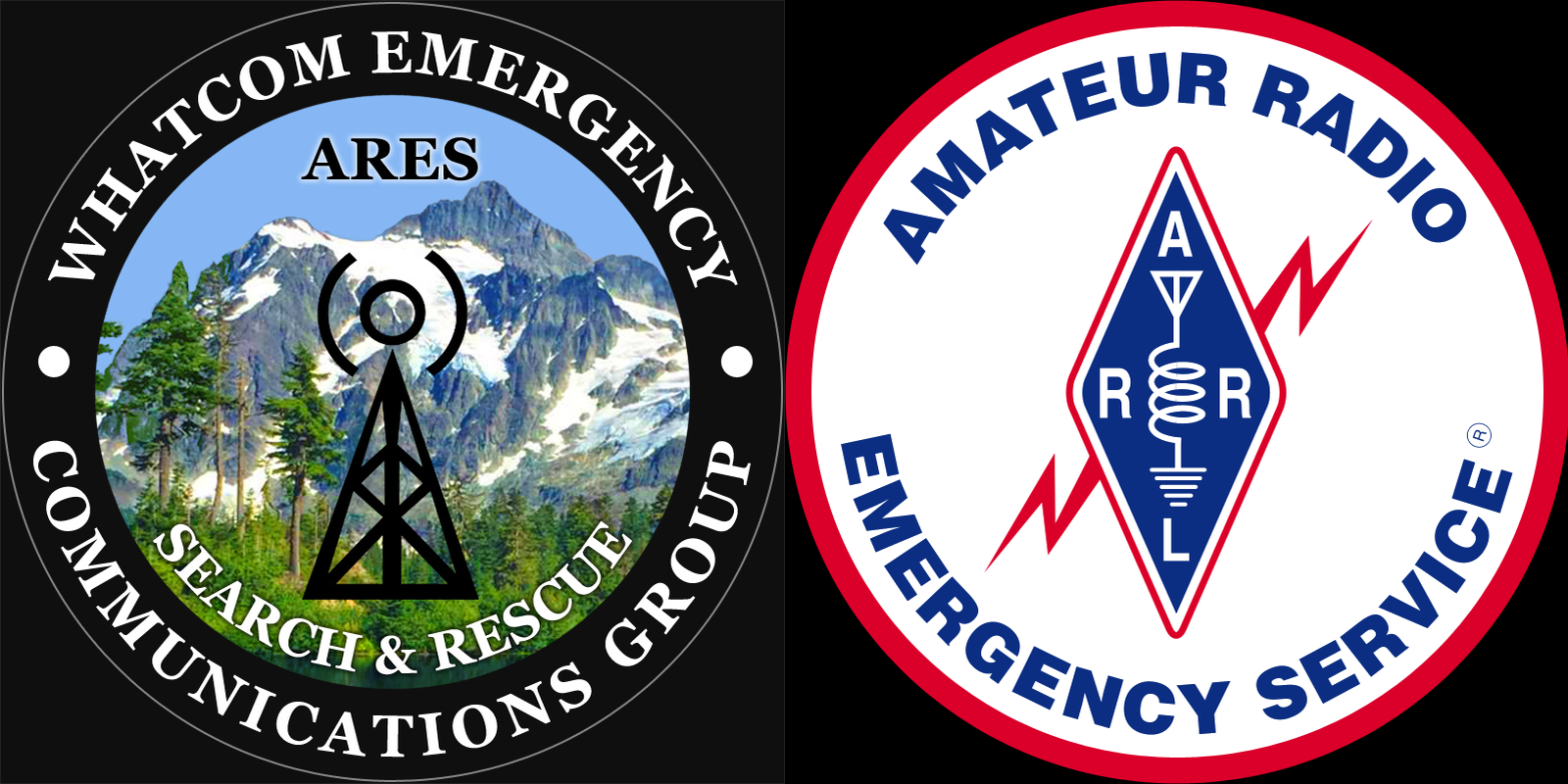How to participate in WECG
1. Show Up
We invite you to join us for our monthly meetings, the second Thursday of every month at 7PM at the Search and Rescue building on the corner of the Smith Road and the Northwest Road (look for the building with the antennas and garage doors). At the meetings we discuss upcoming drills, there are educational opportunities, and we will hear about the work being done by different branches of the group.
Our Membership Coordinator can be reached at coordinator@wecg.org.
2. Sign Up
Fill out the ARES membership form, the Whatcom County Emergency Worker SAR application (fillable) which includes a background check request, and ust the front part of the application for a Washington State Emergency Worker card, EMD-024 Emergency Worker Registration Card (fillable). Turn them in to the Membership coordinator at the monthly meeting, or if that Coordinator is not there, to one of the board members (there’s usually one of us there).The background check needs to be updated every 5 years.

3. Get in contact
To get on our email list for meeting announcements, upcoming events, etc., or for questions or feedback, email info@wecg.org.
4. Get trained & stay current
While various training opportunities arise throughout the year, there are eight basic membership requirements at this time. The basic requirements for Full membership are:
- Be physically and mentally fit for the role that you wish to play in the group*.
- Take ICS 100, ICS 200, NIMS 700, and ICS 800 online from FEMA.
- Take Basic Helicopter Safety training either through local field training, or online.
- Obtain an FCC amateur radio license, preferably at the level of General (so that you can transmit VARA-HF WinLink, but Technician is a decent start, so don’t feel like you have to jump to General right away). If you do not have an FCC license you can still take part, but you will be an Auxiliary Member, which restricts full participation in all activities, but we will help you to obtain your license!
- Obtain First Aid, CPR, and Blood-borne pathogen training/certifications.
- Attend one of the regular SAR Base Camp trainings offered by WECG or any one of our sister SAR groups (such as Summit to Sound).
- Pass a background check through the Sheriff’s office.
- Pay $20 per year in dues.
*Nota bene: we have physically disabled members who participate in the group activities via their home base stations and Zoom. The key is that you need to be physically fit for the role that you wish to play; a Net Control operator during a county emergency can run the net from home, for example.
We ask that you complete these seven steps within a year of applying for membership. Email (or give) your training certifications to either the Membership or Training Coordinator. We also ask that once a member, you do the following to remain in good standing:
- Attend at least four (4) General Membership meetings per year. We have Zoom sessions set up for those members who are unable to physically attend.
- Once you have an FCC amateur radio license, check in to one of the WECG radio nets at least once per month (or 12 per year).
- Serve as Net Control Operator for at least six (6) WECG radio nets per year. Sign up is through a Google spreadsheet; contact a Board member for more information if you don’t have access to that spreadsheet yet.
- Members have a WCSAR Teams/Sharepoint account where important information is stored. This resource is provided for our use, but if it isn’t used, we risk losing it. Members need to keep their information current on the Teams/SharePoint.
Other steps to take, depending upon your level of interest:
- Work through the 12 Steps to Emergency Radio Competency.
- Bolster your knowledge with various ARRL Online Courses.


5. Check In
WECG runs many different radio nets every week, both digital and voice. Our first, and still most popular net is the Sunday night voice net at 1900 hours (7:00pm) on the Church Road repeater 442.8250 MHz with a tone of 156.7 Hz, but we run a variety of digital nets as well. If you’re unfamiliar with digital radio, ask any member for help. We have many members with a rich understanding of the digital modes who will be glad to help you get started, and we also have regular trainings on those modes after our General Membership meetings.
6. Participate
Throughout the year your help is needed in conducting drills and events, and putting down your name as willing to be called out to respond to emergencies along with more experienced operators. Our service to the community is the volunteer work that we do. We are excited to provide emergency communication support with you!


